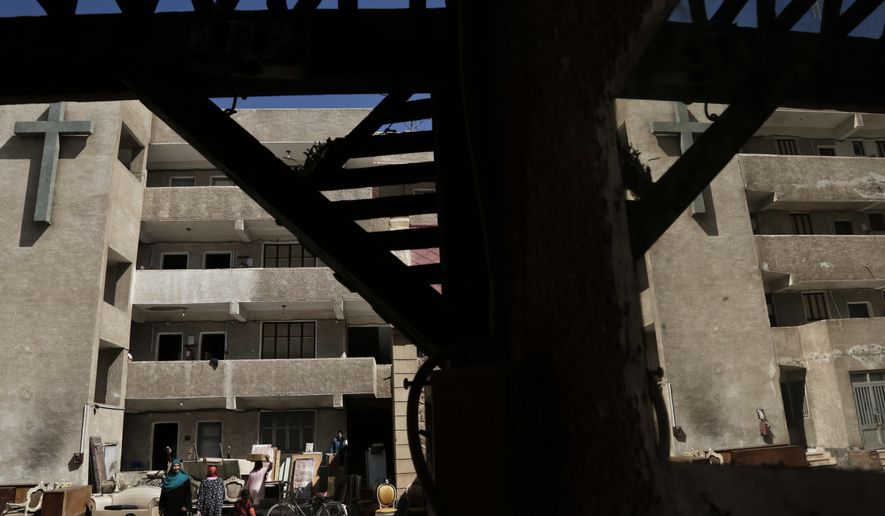OPINION:
In America, religious persecution against Christianity means fighting the American Civil Liberties Union for the right to read a Bible at lunchtime in school.
In Iraq, or Sudan, or India, religious persecution means fighting to worship Jesus without being beheaded. Or bombed. Or tossed off buildings. Or left an orphan.
Perspective, people.
That’s the sobering, somber, not-to-subtle head thump of the film “Christians in the Mirror: Stories of Courage and Faith in the Face of Persecution From Syria, Iraq, Sudan, India and Egypt.” At a private showing, executive producer Jordan Allott, in a roundabout way, said this: Yes, it’s tough to get people to see the Christian persecution that takes place around the world in a way that incites them to act. It’s tough to get people to see the Coptic and Catholic and Baptist as part of the same body.
Enter, “Christians in the Mirror.”
One of its messages? A reminder of how that whole body of Christ thing actually works.
“If one part suffers,” as 1 Corinthians 12:26 reads, “every part suffers with it.”
Open Doors USA, a group that monitors religious persecution around the world, said more Christians today are “suffering for their faith than any other time in history.” Among the worst countries to be a Christian? North Korea, where atheism is the preferred way of the communist dictator, followed by Afghanistan, Somalia, Libya, Pakistan, Sudan, Eritrea, Yemen, Iran, India, Syria and Nigeria. Most of those countries share the common denominator of being dominated by Islam.
“All religious minorities,” the website for “Christians in the Mirror” states, “especially Christians, in the Middle East and Africa, are targets of violent Islamic radicals, whose ideology seeks to annihilate.”
But before the annihilation comes the intolerance, hate and shunning.
In Iraq, Christians are prevented by the country’s constitution from participating in the judicial system.
In Turkey, members of the Armenian apostolic church, part of an orthodoxy that history paints as one of the oldest communities of Christianity, are forced, by law, to ask permission of the government to elect new spiritual leaders.
In Egypt, in the very province where Christianity dominates, tens of thousands of Christians were basically tossed to the streets for their prayer and worship after the government refused to grant permits for churches to keep open doors.
The stats — and headlines — on Christian persecution are staggering. And on-going.
“Christian persecution ’at near genocide levels,’ ” BBC News reported in May.
“Quarter of a Billion Christians Face Major Persecution in 2018,” wrote Facts and Trends in January 2018.
“Christian persecution reached record high in 2015,” CNN wrote in January 2016.
Meanwhile, the nonprofit Secret Believers reports that every month, on average, 359 Christians around the world are killed for their faith; 52 churches or places of Christian worship are attacked; and 146 Christians are imprisoned or otherwise detained and sentenced without trial.
Sad and sorry; tragic and terrible.
But here’s the punch.
As a writer for The Guardian just wrote: “It is ignored in the west, but Christianity is the most persecuted religion. Why is there such silence on the issue?”
That’s a very good question.
It’s a very good question that each and every Christian ought to look in the mirror and ask — particularly, Christians in America where persecution against religion is not so much persecution as it is, say, offensiveness.
• Cheryl Chumley can be reached at cchumley@washingtontimes.com or on Twitter, @ckchumley.




Please read our comment policy before commenting.